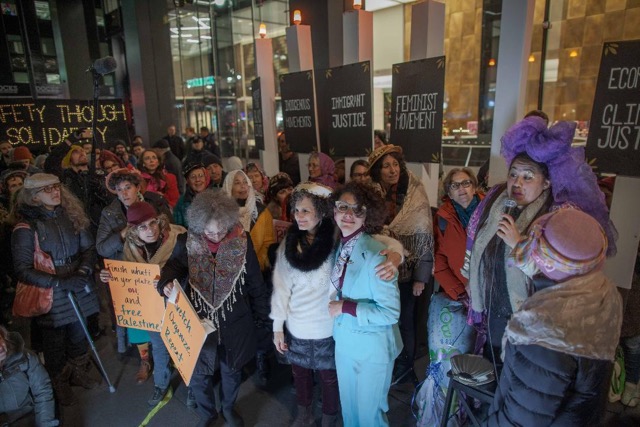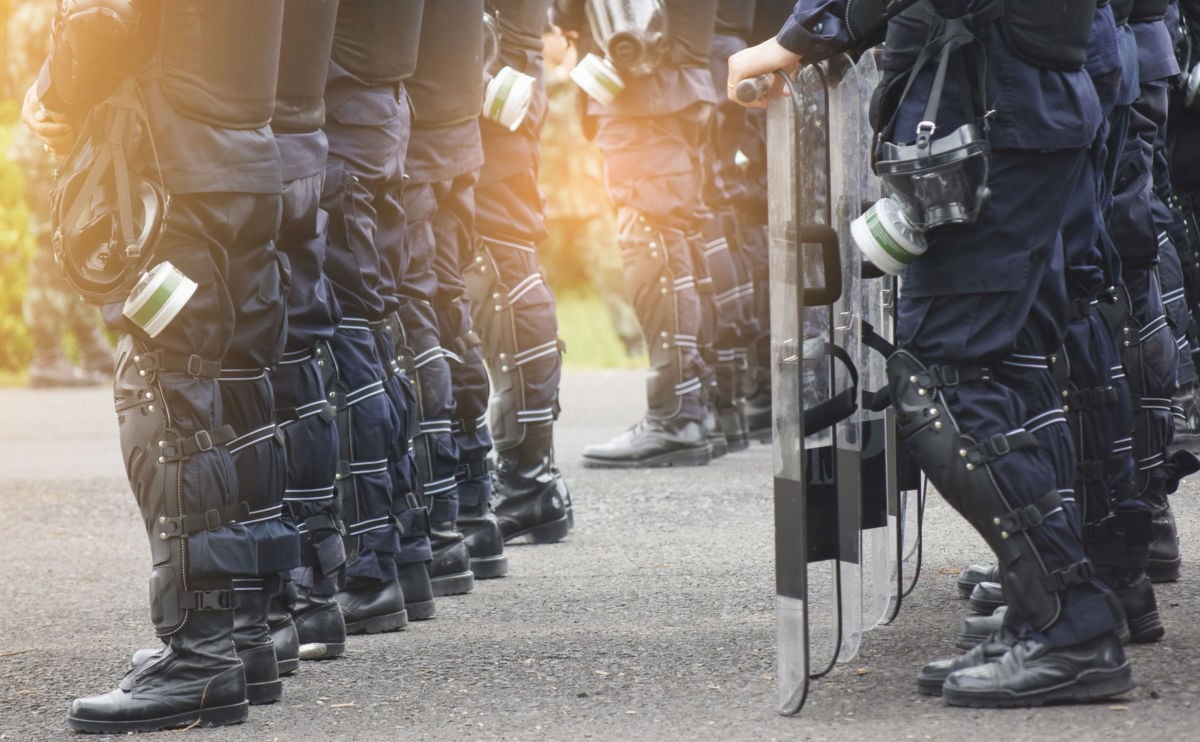Truthout is a vital news source and a living history of political struggle. If you think our work is valuable, support us with a donation of any size.
In communities throughout the United States, law enforcement agencies are choosing to send officers to Israel on exchange programs to share violent practices of surveillance and repression. But as communities learn of these trips and their content, they are quickly backing out. Just last week, the Vermont State Police and Northampton Massachusetts Police Department pulled officers from a recent trip sponsored by the Anti-Defamation League (ADL), a self-proclaimed “civil rights” organization. Yet, in the face of community outrage and criticism, the ADL continues to stand by these deadly exchanges.
Since 9/11, US law enforcement agencies — including state and local police departments, as well as federal agencies like Immigration and Customs Enforcement — have participated in exchange programs with Israeli military and police forces. These programs facilitate a show-and-tell of worst practices, and the effects have been felt immediately here and in Palestine. In 2003, the New York Police Department (NYPD) established a “Demographics Unit” that infiltrated mosques, spied on Muslim student groups and tracked Muslim scholars. CIA officer Lawrence Sanchez, who helped to establish the program, told his colleagues that the idea came from Israeli methods of controlling the West Bank. Meanwhile, in 2016, Israeli police instituted the NYPD’s stop-and-frisk strategy, to harass and search young Palestinian men without probable cause.
These exchanges, while disastrous for US communities of color and Palestinians, may not be surprising. The US and Israel have long held tight military and economic ties. But what may be surprising is that many of these exchange programs are organized, facilitated, and funded by the ADL, whose stated mission is to “stop the defamation of the Jewish people, and to secure justice and fair treatment to all.” Why would the ADL be in the business of training two of the world’s most racist, repressive and violent police and military forces?
In fact, the ADL — which advocates for Israel — has a long track record of working against movements for social and racial justice. In 2003, the ADL settled with the American-Arab Anti-Discrimination Committee in the case ADC v. ADL, resulting from illegal spying carried out by the ADL on myriad social justice organizations, including Arab American organizations like the ADC, anti-apartheid groups like Artists Against Apartheid, gay liberation group ACT UP, the American Indian Movement (AIM) and unions like the United Farm Workers.

A permanent injunction prohibits the ADL from continuing surveillance, but today the ADL facilitates the National Counter-Terrorism Seminar (NCTS), bringing US officials to Israel, and the Advanced Training School, bringing Israeli law enforcement to the United States. On NCTS, law enforcement visit checkpoints that restrict Palestinian freedom of movement, meet with the Shin Bet security service known for carrying out targeted assassinations, and learn from Israel Airports Authority, which systematically racially profiles travelers.
Across the United States, as communities learn about these deadly exchanges, they are quickly severing ties. In April 2018, the city council in Durham, North Carolina, voted to prohibit police participation in international “military-style training” exchange programs, and just last week state police in Vermont and local police in Northampton, Massachusetts, decided to cancel participation in the recently concluded ADL-sponsored police exchange program for New England law enforcement agencies.

Of course, even if every police department in the country canceled its participation in the deadly exchanges, we would still have much work to do to end the violence of policing and build a transformative vision of safety.
On the night of December 10, hundreds of New Yorkers gathered outside the offices of the ADL to celebrate these victories and call for the end of exchange programs between Israeli military and US police. Calling for safety through solidarity, not militarization, walls and policing, those gathered lit the People’s Menorah. The candles represented the movements for social and racial justice that guide us: the Movement for Black Lives, disability justice, Indigenous movements and liberation for Palestinians.

We are at a crucial moment in global struggles for freedom and justice. From the United States to Israel, Brazil to the Philippines, right-wing leaders are constructing “bunker states”: reactionary and fascist nations promising the veneer of militarized safety to an ever-shrinking few. These governments, while creating inequality and instability, stoke fears of poor people, people of color and Indigenous communities as dangerous threats. In Bunker USA, Central American migrants asking for their right to apply for asylum in the United States are cast as an “invasion.” In Bunker Israel, African asylum seekers are depicted as a “cancer.”
Yet, the world over, peoples’ movements are venturing beyond the bunker and its borders, seeing through the false promises of a vision of safety that necessitates militarized walls, and instead building solidarity with each other. Just as the light of the People’s Menorah gave protesters in New York hope amid the darkness of the impending winter solstice, burgeoning peoples’ movements provide a vision of hopeful solidarity amid the darkness of rising fascism and right-wing regimes.
We all have a choice in this moment: to support the violent forces of repression, displacement and racism, or to unite in joint struggle as we build visions of true safety for all.
A terrifying moment. We appeal for your support.
In the last weeks, we have witnessed an authoritarian assault on communities in Minnesota and across the nation.
The need for truthful, grassroots reporting is urgent at this cataclysmic historical moment. Yet, Trump-aligned billionaires and other allies have taken over many legacy media outlets — the culmination of a decades-long campaign to place control of the narrative into the hands of the political right.
We refuse to let Trump’s blatant propaganda machine go unchecked. Untethered to corporate ownership or advertisers, Truthout remains fearless in our reporting and our determination to use journalism as a tool for justice.
But we need your help just to fund our basic expenses. Over 80 percent of Truthout’s funding comes from small individual donations from our community of readers, and over a third of our total budget is supported by recurring monthly donors.
Truthout’s fundraiser ends tonight! We have a goal to add 143 new monthly donors before midnight. Whether you can make a small monthly donation or a larger one-time gift, Truthout only works with your support.
